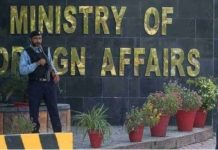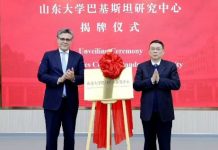The Federation of Pakistan Chambers of Commerce and Industry on Saturday warned the authorities that inflation above 6 percent can hurt economic growth in the country in post-corona slowdown and a careful strategy is required to keep it in control.
In a written statement issued here, FPCCI President Mian Anjum Nisar said that Pakistan inflation reaches over 9 percent in Sept against stable annual inflation rate of 1.2 percent across the world amidst dropping food and energy rates, calling for putting the economy on a balanced and sustainable growth trajectory, addressing the underlying structural vulnerabilities, as low export growth, limited foreign exchange reserves, documentation of economy and higher food inflation are still major challenges to the economy.
He said that there is a consensus that a low inflation rate helps economic activities, while high inflation hurts economic growth. The high inflation environment affects decision making of all economic agents in economy, like investors, savers, consumers and producers through uncertainty about the expected payoffs from their decisions. Moreover, a persistently high inflation also causes erosion of the value of the local currency in terms of foreign currencies. Such uncertainties, in turn, have adverse implications for economic activities.
Mian Anjum Nisar said low inflation helps economic agents to predict outcome of their economic decisions with fair level of certainty. Especially, producers follow their plans for business expansion with more confidence; and new investment is undertaken in the expectation of predictable returns.
FPCCI President Mian Anjum Nisar stressed the need for building on gains on the ease of doing business front, which requires not just the capacity development in key public institutions, but also a continuous dialogue with relevant stakeholders to ensure smooth implementation, he added. He said that owing to low unit prices, exports growth remained low.
Terming inflation a serious threat to economy, he urged the government to come up with out-of-the-box solution to expedite economic activities in the country.
FPCCI president lamented that regular increase in oil, gas, power rates and rupee devaluation was posing threat to all sectors besides making life of common man miserable. He said that inflation measured through consumer price index (CPI) surged to 9.2 percent last month. Over the past three months, he said, prices of fresh vegetables, fruits and meat have increased massively while average inflation during the January witnessed 12-year high at 14.6 per cent this year-the highest inflation not only in comparison with the developed economies but also with emerging economies.
The most dominating push to inflation came from non-food-non-energy (core inflation) component that typically represents the underlying demand pressures on the economy. The core inflation, measured by excluding volatile food and energy prices, was recorded at 8.5 percent year-on-year. It has been steadily rising for a couple of months despite tightening of the monetary policy.
According to reports, the annual inflation rate rose to 9 percent in September of 2020 from 8.2 percent in the previous month. Main upward pressure came from prices of food & non-alcoholic beverages (14.7 percent vs 12.9 percent in August); health (8.3 percent vs 7.7 percent); furnishings (7.9 percent vs 7.5 percent); restaurants & hotels (8.3 percent vs 8 percent) and recreation & culture (3.9 percent vs 3.5 percent).
It is to be noted that the PBS calculates the inflation rate by measuring the prices of a basket of 480 common goods and services, such as the cost of education, house rent, utility bills and food and beverages. An increase in the inflation rate means the prices of goods and services have increased.
According to reports, higher food item prices such as tomatoes, wheat and potatoes pushed the inflation up during September this year. The rural inflation has been higher in September as compared to urban, as it was increased by 11.1% as compared to urban inflation of 7.7%.
He stated that inflation below 5.67% may be favourable for economic growth while above 6.05% can hurt growth.
He said that the most serious threat to the economy this year has been the constantly rising inflation owing to the high production cost, triggering inflation sharply. Rejecting the continuously borrowing from International Monetary Fund for financial assistance, he said it has brought wave of price-hike, as inflation is already hitting due to continuous raise in oil prices and depreciation of local currency.
He said the IMF loan has devastating effects on the economy, as with more taxes and increased rates of utilities, cost of production has further increased, rendering Pakistani exports uncompetitive in the global market.











